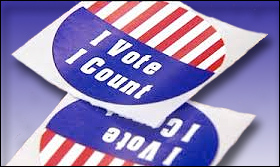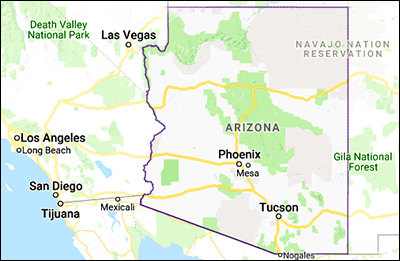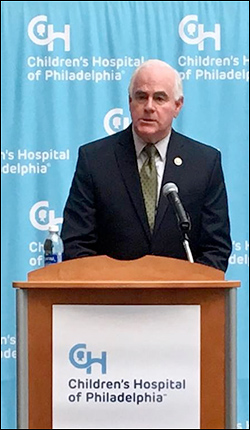By Jim Ellis
 Aug. 29, 2018 — Turnout favored the Republicans in both contested states; about 110,000 more Republicans than Democrats voted in Florida, while the Arizona GOP participation rate was approximately one-third higher than Democrats. The big surprise of the day was Tallahassee Mayor Andrew Gillum’s win to become the Democratic nominee for governor in Florida.
Aug. 29, 2018 — Turnout favored the Republicans in both contested states; about 110,000 more Republicans than Democrats voted in Florida, while the Arizona GOP participation rate was approximately one-third higher than Democrats. The big surprise of the day was Tallahassee Mayor Andrew Gillum’s win to become the Democratic nominee for governor in Florida.
FLORIDA
Yesterday, we covered the impending Florida Democratic gubernatorial primary in terms that suggested the surge detected related to Tallahassee Mayor Andrew Gillum would likely be too little, too late, and that former US Rep. Gwen Graham (D-Tallahassee) was in the best position to win the open Democratic primary. In reality, most of the polling was flawed, and the Gillum surge was enough for him to score a 34-31-20-10 percent victory over Graham, Miami Beach Mayor Philip Levine, billionaire developer Jeff Greene, and four others.
Up until the last two weeks, Gillum didn’t appear to be much of a factor as he consistently hovered only around 10-12 percent in the polling. But, combined independent spending from liberal billionaires Tom Steyer and George Soros designed to increase his turnout, an endorsement from former presidential candidate Bernie Sanders, and what was obviously inaccurate polling — the only survey to show Gillum ever ahead was an internal study, but that was discounted because it came from the mayor’s campaign — allowed Gillum to claim the statewide Democratic nomination.
On the Republican side, the polling appeared to be more reliable. Six of the seven August polls projected Rep. Ron DeSantis (R-Palm Coast/Daytona Beach) to be holding a substantial lead over Agriculture Commissioner and former US Congressman Adam Putnam, the early race leader. Such predictions proved true, as Rep. DeSantis scored a 20-point, 57-37 percent victory, and put him in solid position moving into the general election.
With Rep. DeSantis possibly being the most vociferous Donald Trump supporter of any winning GOP candidate within this election cycle and Mayor Gillum coming from the Democratic Party’s far left flank, the open general election will feature an extreme contrast.






